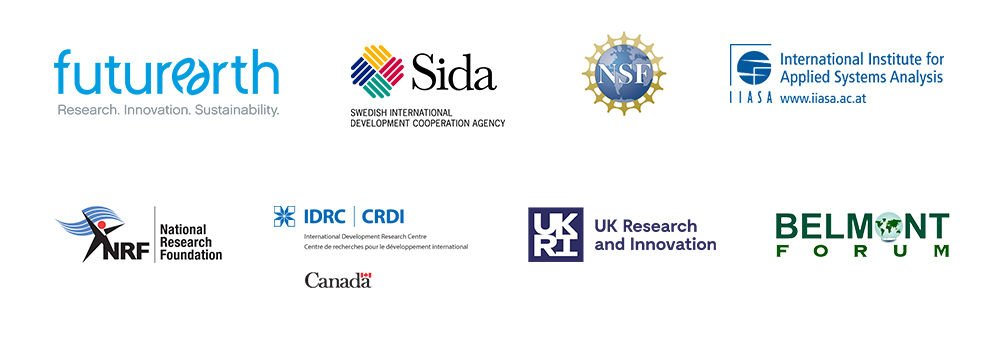With just ten years to go to achieve the 17 Sustainable Development Goals (SDGs) of the UN’s 2030 Agenda, science funders from around the world have asked the International Science Council (ISC) to convene the insights and ideas of the broader global scientific community on the critical priorities for science that will support and enable societies to accomplish the goals by 2030. We want to hear from scientists in all fields and all disciplines, including the natural, social and human sciences.
The idea behind this call is to identify priorities for game-changing action in two related domains:
- Science for sustainability transformations: promoting mission-driven research that harnesses solutions-oriented knowledge from across the spectrum of scientific disciplines and approaches, including fundamental research; adopts a systems-based approach; and informs policy and public action through trans-disciplinary engagement with relevant decision makers and innovators from the worlds of policy, civil society and business.
- Transformations of science systems: supporting the evolution of science systems in order to support their effective contribution to the 2030 Agenda; including the development of open science systems, the promotion of trans-disciplinary approaches to knowledge generation, knowledge brokerage and science advisory ecosystems, scientific capacity needs at individual, institutional and policy levels, as well as systems of research incentives.
This is a unique opportunity for the international science community to advise science funders about the support that science needs in order to maximize its impact on the achievement of the SDGs in the next decade. What are the critical knowledge or data, as well as capacity gaps that funders should be addressing? And how do science and related funding systems need to change in order to amplify and accelerate impactful science?
This initiative is being led by the International Science Council in partnership with:

SURVEY
You can answer the questions using this form or upload a document with all your answers in the area towards the end of the survey.
Why now?
In September 2019, the UN Secretary-General launched a “Decade of Action to deliver the Sustainable Development Goals by 2030”. Six months later, on 11 March 2020, the World Health Organisation declared the COVID-19 outbreak a global pandemic. As the devastating and cascading impacts of this global crisis continue to unfold, the Secretary-General has called on governments and stakeholders alike to “build back better” in order to prevent large-scale shocks in the future and to create more sustainable, resilient and inclusive societies.
The call to ensure that we build back better from COVID-19 is essentially a call for urgent, renewed commitment to achieving the 2030 Agenda for Sustainable Development, a globally-agreed framework intended to put the world on a more sustainable pathway. The context in which such a commitment is expected is one in which:
- We are seriously off track. While there has been progress towards achieving the goals, it is uneven, and the COVID-19 pandemic could delay implementation efforts further, as countries reallocate resources to deal with the emergency and its fallouts. COVID-19 is more than a health emergency, affecting the social fabric of society, as well as our economies, potentially compromising many hard-won development gains. At the same time, the current crisis may offer opportunities to reset transformations to sustainability.
- Returning to “business as usual” is not an option. The choices our societies make now will have enormous impacts on future development pathways. To prevent locking in decades of investment and innovation into an unsustainable path, the long-term COVID-19 recovery strategies should steer the global economy towards a more resilient and equitable future.
- We have reason to still be optimistic about the future. The 2030 Agenda for Sustainable Development and the SDGs offers a potential to advance the well-being of humanity and the planet. But the biggest transformative potential of the 2030 Agenda does not lie in pursuing single goals or targets but rather in achieving ‘systemic transformations’ that take full account of the dynamic and integrated nature of the SDGs (2019 GSDR). These transformations include:
- Strengthening human well-being and capabilities;
- Shifting towards sustainable and just economies;
- Building sustainable food systems and healthy nutrition patterns;
- Achieving energy decarbonization and universal access to energy;
- Promoting sustainable urban and peri-urban development;
- Securing the global environmental commons.
- We must empower science to advance the SDGs. Science is recognised as a critical lever in achieving the six transformations. It is at the forefront of providing solutions by creating actionable knowledge and informing policies and practices that support the attainment of the SDGs. A well-coordinated and collaborative programme of accelerated innovation and funding will maximize the impact of research investments and increase the chances of the SDGs being realised. The key challenge that science policy makers and funders now face is to organize investments in science and science systems in ways that ensure transformative societal outcomes and the creation of benefit for all people and the environment.
- The SDGs form part of an integrated people and planet agenda. Achieving the SDGs in 10 years is not only a challenge of accelerating and scaling transformations across societies, cultures and geographies, it is also about choosing development pathways that target safe and just human futures on a stable and resilient planet. Achieving the SDGs, is a critical milestone along that journey. A key challenge for science is to help identify, understand and support those visions for the future.
About the Global Forum of Funders
Recognizing this pivotal moment in time, science funders and the research community met in Washington DC in 2019 and initiated in a “Decade of Global Sustainability Science Action” in order to catalyse collective action for accelerating the impact of science and science funding on the achievement of the SDGs.
This initiative is being led by the International Science Council (ISC) in partnership with the Swedish International Development Cooperation Agency (Sida), National Science Foundation (USA), National Research Foundation (South Africa), International Development Research Centre (Canada), UK Research and Innovation, Belmont Forum, Future Earth and the International Institute for Applied Systems Analysis (Austria).
To realize the full potential of science to stimulate transformative change towards a more sustainable and resilient pathway, the International Science Council with the consortium of partners recognize the critical importance of building robust STI systems, supporting the development of scientific capacities in all parts of the world, promoting open science, reinforcing international scientific collaboration, and securing sustainable investments in science.
- The goal: The initiative seeks to enhance strategic collaboration between national research councils, development aid agencies, private foundations in order to accelerate the impact of science and science funding on the achievement of the SDGs.
- The next steps: For the next Forum, which is scheduled to take place in the first trimester of 2021, science funders invited the ISC to mobilise the global scientific community towards identifying missions for science that will be critical for accelerating the implementation of the SDGs by 2030.
The time to act is now: Science funders agreed to assess such missions and explore how they could support them in a collaborative way.
For further information, please contact Katsia Paulavets, Senior Science Officer, ISC, at katsia.paulavets@council.science.
